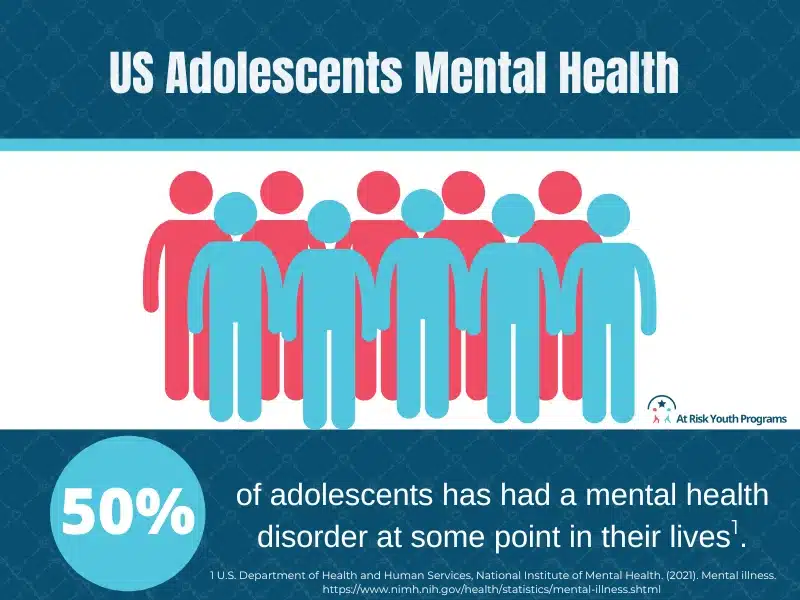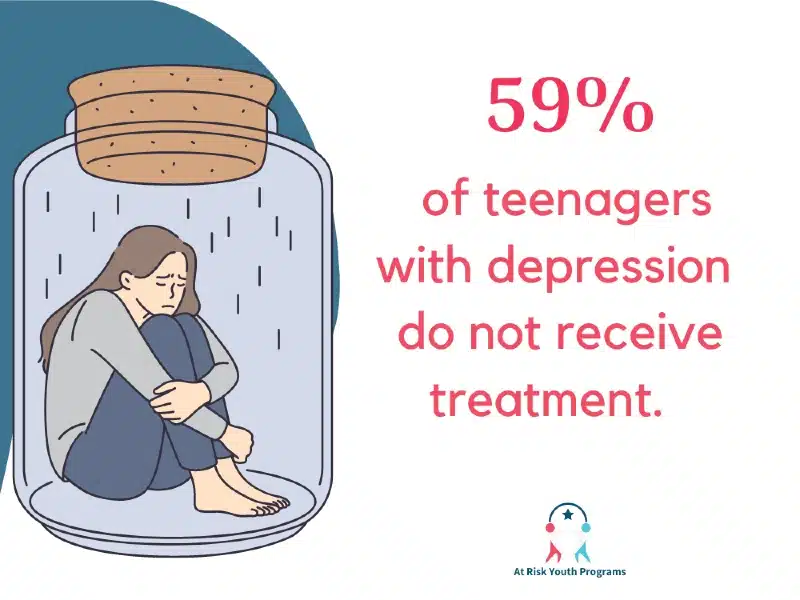Parenting Strategies for Supporting Adolescent Mental Health
Recognizing the Symptoms - More than a Behavioral Issue
Behavioral issues are trademark signs of teen mental health issues. These behaviors are commonly blamed on just a “phase” or general teenage attitude problems. Yet, it is these exact outlooks that contribute to the fact that most teens don’t get the treatment they need. For example, over 59 percent of teens with depression don’t get any treatment at all.

In reality, key behavior issues can be critical indicators that your teen needs help with a mental health issue. Additionally, many of the symptoms a teen can portray are telltale indicators that can be related to numerous mental health issues. For example, angry outbursts can be related to bipolar disorder, ADHD (attention deficit hyperactivity disorder), and anxiety.
Signs of teen mental health issues can include:
- One-on-one psychological counseling
- Medications for mental health support
- Residential treatment specifically catered to teens
- Therapeutic boarding school
How the Stigma Surrounding Behavioral Health Prevents Treatment
The stigma associated with teen mental health issues can affect both teens and their parents. Parents naturally feel like they should be able to “fix” their child or like they are somehow failing if their teen needs help.
Teens can feel embarrassed because of judgment from peers or avoid treatment for fear of being deemed as “crazy” or somehow incapable. While the stigma can be difficult to navigate, it is important to recognize that these preconceived notions are not reality. Many teens struggle and many parents have to help their teens find treatment.
When therapy fails ...
Therapy is often a starting point when teens show signs of mental health woes. However, therapy is not always a cure. Some teens need more intense levels of therapy, and that is perfectly fine.
If your teen does not do well with counseling or therapy, it is a good idea to consider a more therapeutic approach, such as residential care.
Find the Right Residential Treatment Program for Your Teen Now
When your teen refuses treatment ...

Benefits of Addressing Issues Now to Have a Better-Adjusted Adult
Addressing mental health issues during the teenage years can come with unique challenges for both your child and you. However, the earlier these issues are addressed, the less likely it will be that the behavioral problems or the condition itself bleeds into adulthood. Children with mental health issues grow into adults with those same issues when there is no intervention. Unfortunately, adults don’t always have the safety net of their parents when they struggle with things like relationships, maintaining stable employment, or taking care of themselves. Therefore, the struggles can get bigger as a child gets older. And, the decisions made right now can easily influence what the future looks like.
Are you struggling as a parent because you suspect your teen has mental health issues? At Risk Youth Programs is here for you. Take the Teen Behavior Test to get started or contact us to speak to a family adviser.
- Avoiding social interaction
- Losing interest in things once enjoyed
- Engaging in dangerous or risky behaviors
- Experimenting with drugs or alcohol
- Performing poorly in school or school activities
- Having major mood swings or angry outbursts
- Changes in sleep patterns or eating
- Talking about, threatening, or romanticizing suicide













